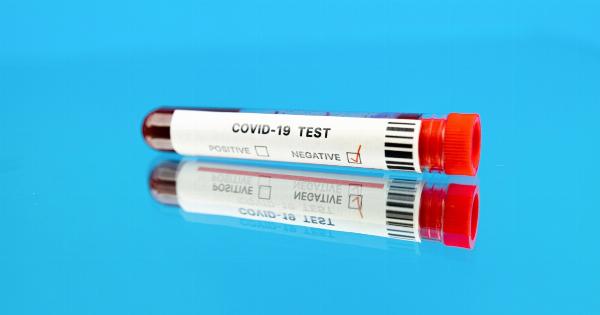Saudi Arabia has been facing a major challenge in managing the spread of Middle East Respiratory Syndrome (MERS) cases.
The country has been at the forefront of battling this deadly epidemic, but the wrongful counting of MERS cases has affected the efficiency of epidemic management efforts. This article examines the implications of these incorrect counts on the overall management of the MERS epidemic in Saudi Arabia.
The Emergence of MERS
MERS first emerged in Saudi Arabia in 2012 and has since become a significant public health concern for the country. The virus is a type of coronavirus and causes severe respiratory illness in infected individuals.
It has a high mortality rate, making it crucial to accurately track and manage cases to prevent further spread.
Challenges in Counting MERS Cases
One of the key challenges in epidemic management is the accurate counting of MERS cases. Unfortunately, Saudi Arabia has been plagued by wrongful counting, which has had serious implications for the management of the epidemic.
Inflated Case Numbers
One of the issues with wrongful counting is the inflation of case numbers. When incorrect or non-MERS cases are included in the count, it distorts the understanding of the actual epidemiological situation.
This can lead to misallocation of resources and an inadequate response to the real MERS cases.
Impact on Resource Allocation
The miscounting of MERS cases affects resource allocation in epidemic management. With inflated case numbers, resources may be diverted to areas that do not require them, leaving actual MERS cases without the necessary support.
This can lead to delays in testing, treatment, and containment efforts, further exacerbating the spread of the virus.
Public Perception and Trust
Wrongful counts also influence public perception and trust in the authorities’ ability to effectively manage the MERS epidemic.
When individuals see discrepancies in case numbers or inconsistencies in reporting, it erodes their confidence in the government’s ability to handle the crisis. This can lead to public panic, mistrust, and non-compliance with preventive measures.
Delayed Response
The inaccurate counting of MERS cases can lead to delayed responses from healthcare authorities.
When the actual extent of the epidemic is underestimated due to wrongful counts, necessary actions such as implementing strict hygiene protocols, contact tracing, and isolation measures may be delayed. Delayed responses can contribute to the further spread and intensification of the MERS epidemic.
Importance of Accurate Data
Accurate data is crucial for effective epidemic management. By ensuring that only genuine MERS cases are counted, healthcare authorities can make informed decisions and implement appropriate measures to control the spread.
Accurate data also helps in monitoring the effectiveness of interventions and adjusting strategies accordingly.
Addressing the Issue
Recognizing the seriousness of wrongful counts, Saudi Arabia has taken steps to address the issue. Efforts have been made to improve diagnosis and reporting systems to ensure accurate identification of MERS cases.
Additionally, stricter protocols and guidelines for counting and reporting cases have been implemented to minimize errors and improve data quality.
Collaboration and International Support
Managing the MERS epidemic in Saudi Arabia requires collaboration and international support.
The sharing of best practices and expertise from other countries dealing with similar outbreaks can significantly contribute to improving epidemic management strategies. Collaborative efforts can also help in enhancing surveillance systems and diagnostic capabilities, leading to more accurate counting of MERS cases.
Conclusion
The wrongful counting of MERS cases poses significant challenges to epidemic management in Saudi Arabia.
The inflation of case numbers, misallocation of resources, impacts on public perception, delayed response, and the importance of accurate data highlight the need for improved counting and reporting mechanisms. By implementing stricter protocols and collaborating with international partners, Saudi Arabia can enhance its epidemic management capabilities and work towards effectively controlling the MERS epidemic.





























